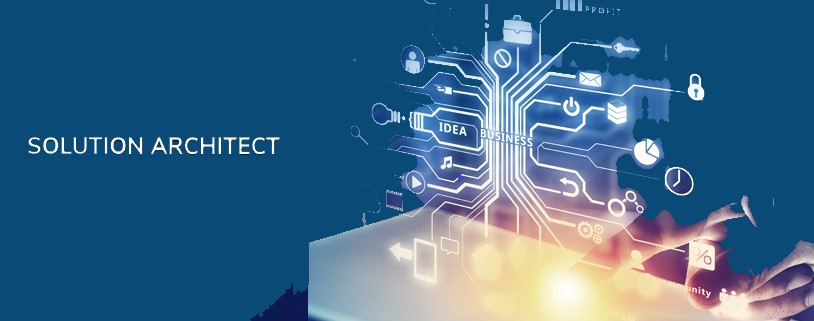Hire an ERP solution architect
Enterprise Resource Planning (ERP) systems have become indispensable tools for businesses seeking to streamline their operations, improve efficiency, and gain a competitive edge. An ERP solution integrates various functions across an organization into a single unified system, facilitating seamless communication and data flow between departments. However, implementing an ERP system is a complex and resource-intensive process that requires careful planning, technical expertise, and a deep understanding of business processes. This is where the role of an ERP solution architect becomes crucial. Hiring an ERP solution architect can be the key to a successful ERP implementation, ensuring that the system is tailored to meet your specific business needs and objectives.
An ERP solution architect is a specialized professional responsible for designing, implementing, and managing ERP systems within an organization. They possess a unique blend of technical skills, business acumen, and project management capabilities. Their primary goal is to align the ERP system with the organization’s strategic goals and ensure that it delivers the intended benefits. The architect plays a pivotal role in every phase of the ERP lifecycle, from initial planning and requirements gathering to system design, implementation, and ongoing maintenance.
One of the first tasks of an ERP solution architect is to conduct a thorough analysis of the organization’s existing processes and systems. This involves working closely with stakeholders across different departments to understand their workflows, pain points, and requirements. The architect will map out the current state of operations and identify areas where the ERP system can bring about improvements. This analysis forms the foundation for designing a solution that addresses the organization’s specific challenges and supports its long-term goals.
The design phase is where the ERP solution architect’s technical expertise comes to the forefront. They are responsible for creating a comprehensive blueprint for the ERP system, detailing its architecture, modules, integrations, and data flows. This blueprint serves as a roadmap for the implementation team, guiding the development and configuration of the system. The architect must ensure that the design is scalable, flexible, and aligned with industry best practices. They also need to consider factors such as data security, compliance, and system performance.
Implementation is often the most challenging phase of an ERP project, and the ERP solution architect plays a critical role in overseeing this process. They work closely with the implementation team, which may include developers, consultants, and end-users, to ensure that the system is built according to the design specifications. The architect is responsible for making key decisions related to system configuration, customization, and integration with other applications. They must also manage any technical issues that arise and ensure that the project stays on track and within budget.
Testing and validation are essential components of a successful ERP implementation. The ERP solution architect is responsible for developing a comprehensive testing strategy to ensure that the system functions as intended. This involves conducting various types of testing, such as unit testing, integration testing, user acceptance testing, and performance testing. The architect must work closely with end-users to validate the system and ensure that it meets their needs and expectations. Any issues identified during testing must be addressed promptly to avoid disruptions during the go-live phase.
Training and change management are critical aspects of ERP implementation that are often overlooked. An ERP solution architect understands the importance of preparing the organization for the new system and works to ensure a smooth transition. They develop training programs and materials to educate end-users on how to use the ERP system effectively. The architect also collaborates with change management teams to address any resistance to change and ensure that employees are fully onboard with the new system.
Once the ERP system is live, the ERP solution architect’s role does not end. They are responsible for ongoing maintenance, support, and optimization of the system. This involves monitoring system performance, addressing any issues that arise, and implementing updates and enhancements. The architect must also stay abreast of new developments in ERP technology and best practices to ensure that the system continues to deliver value to the organization.
Hiring an ERP solution architect offers several benefits to organizations embarking on an ERP implementation. First and foremost, it ensures that the project is guided by an expert with a deep understanding of both technology and business processes. This reduces the risk of project failure and increases the likelihood of achieving the desired outcomes. The architect’s expertise in system design and implementation ensures that the ERP system is built to meet the organization’s specific needs and can adapt to future changes.
An ERP solution architect also brings a strategic perspective to the project. They understand how the ERP system fits into the broader context of the organization’s goals and objectives. This enables them to design solutions that not only address immediate pain points but also support long-term growth and success. The architect’s ability to align the ERP system with the organization’s strategic vision ensures that the investment in ERP delivers maximum value.
Moreover, an ERP solution architect serves as a bridge between technical and non-technical stakeholders. They possess strong communication and interpersonal skills, enabling them to effectively engage with individuals at all levels of the organization. This ensures that the needs and concerns of different stakeholders are considered and addressed throughout the project. The architect’s ability to facilitate collaboration and build consensus is crucial to the success of the ERP implementation.
In conclusion, the role of an ERP solution architect is vital to the success of an ERP implementation. Their expertise in system design, implementation, and management ensures that the ERP system is tailored to meet the organization’s specific needs and delivers the intended benefits. By conducting through analysis, creating a comprehensive blueprint, overseeing implementation, and ensuring ongoing maintenance and optimization, the architect plays a critical role in every phase of the ERP lifecycle. Hiring an ERP solution architect offers numerous benefits, including reduced risk of project failure, alignment with strategic goals, and effective stakeholder engagement. At NPS Softwares LLP, we have a team of experienced ERP solution architects who are dedicated to helping organizations achieve their goals through successful ERP implementations. Contact us today to learn more about how we can support your ERP project and drive your organization’s success.

